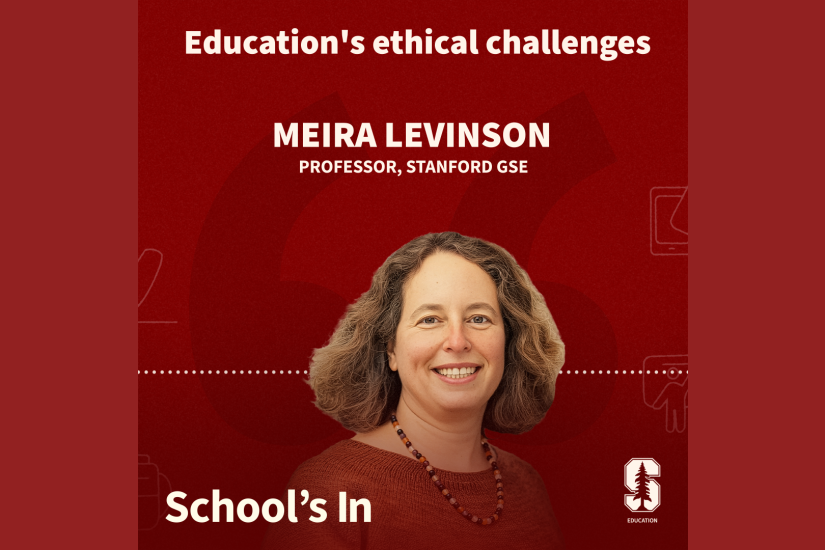
Understanding how genes relate to education
On School’s In, Assistant Professor Benjamin Domingue joined GSE Dean Dan Schwartz and Senior Lecturer Denise Pope for a discussion about recent developments in genetics and their relevance on education.
Listen to the full episode at the link below and find more episodes at Stanford Radio. School’s In airs weekends on SiriusXM Insight channel 121.
Interview Highlights
The importance of studying genes
I think that as educators we want to believe that the things we're doing matter and they certainly do. And the reason that I think genes are important tools for studying human development is because they don't change, and unlike almost everything else we can study, we don't have to worry about which direction causality is going between genes and the thing we care about. We know that genes come first. They may be associated with downstream exposures and other things, but they're not caused by those downstream exposures. They're a really powerful platform from which to observe human development. And it's certainly not the case that genes are destiny, but they are associated with basically every human behavior that we're interested in.
Polygenic score
The thing that I use the most in my work is what's known as a "polygenic score." It's a single-number summary that collects information from across the genome into a single predictor about, in this case, how far somebody is going to go in school. And I like to explain it as basically being like a credit score. A credit score is a single-number summary meant to indicate your financial situation and the polygenic score predicts educational attainment, but you can also construct them to predict other outcomes. And so, we're using information from the entire genome when we predict educational attainment.
Interventions beyond genetics
Nature vs. nurture is the silliest kind of way of framing this issue. It’s really both of the things that matter and they're in constant interplay in very complex ways. I think a lot about body size and smoking – we've seen massive changes in how big people are. There's a very well-known obesity epidemic that we're living through. People have stopped smoking, on the other hand. The rates have just plummeted in the last 40 years. Those changes have nothing to do with genes, even though those traits are both very well known to be heritable. I think genes offer a powerful platform for studying human development. They're good tools for studying how people who start in relatively similar situations end up different. I think there's a lot we can learn from the study of genes, but there's so much we can do with environmental interventions and things that aren't genetic to improve human lives. I don't think we have to at all be satisfied with our genetic destiny.



